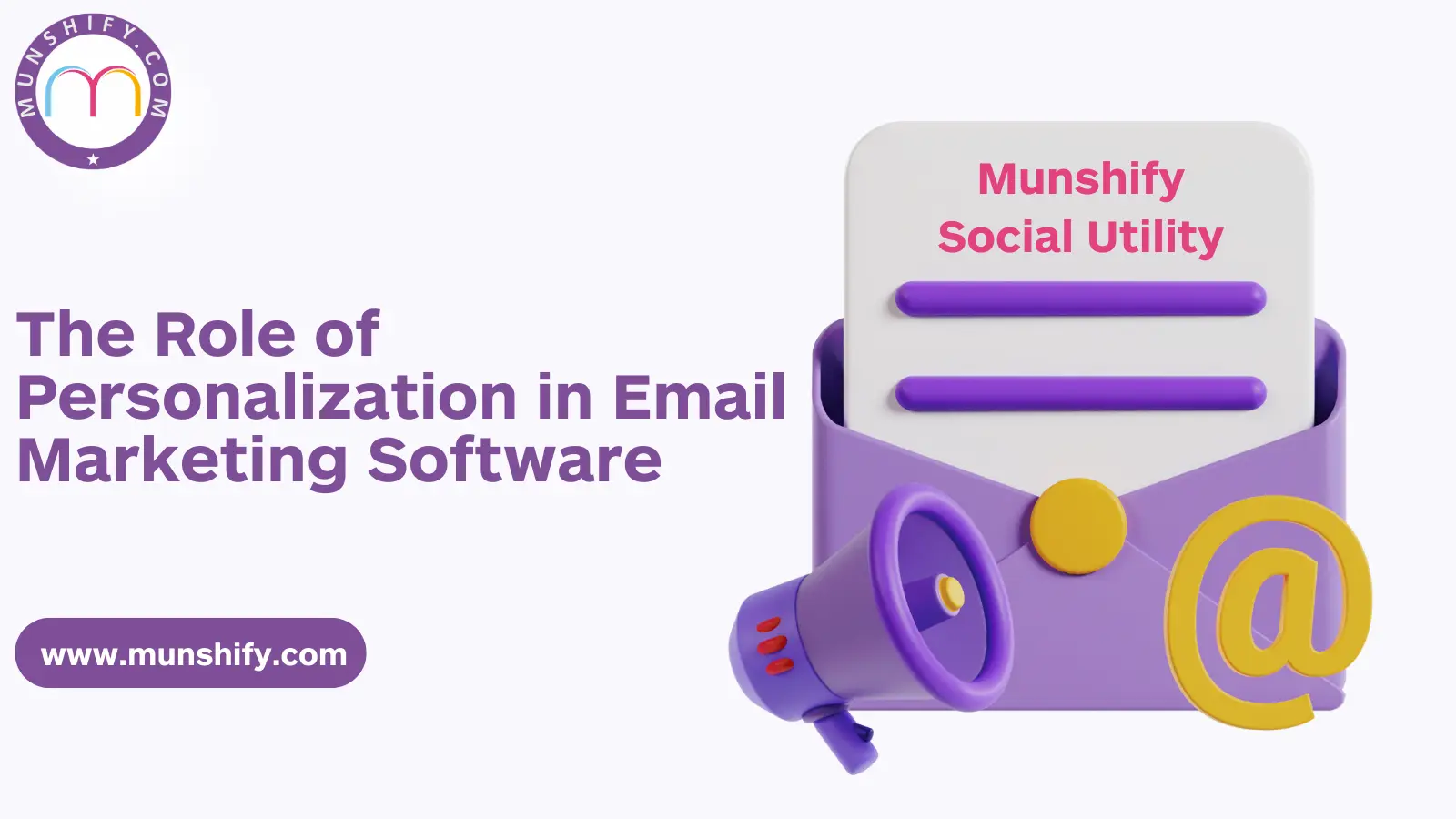In the realm of digital marketing, email remains a stalwart tool for businesses seeking direct and effective communication with their audiences. Email marketing software plays a pivotal role in facilitating this evolution, empowering businesses to tailor their messages to individual preferences and behaviors. This blog explores the importance of personalization in email marketing software, its impact on engagement and conversion rates, and how businesses can leverage this technology to enhance their marketing efforts.
Table of Contents
- What is Email Marketing Software?
- The Evolution of Email Marketing
- Importance of Personalization
- Key Features of Personalized Email Marketing Software
- Best Practices for Implementing Personalization
- Challenges and Considerations
What is Email Marketing Software?
Email marketing software refers to platforms and tools designed to create, send, and analyze email campaigns. These tools streamline the process of managing subscriber lists, designing visually appealing emails, and tracking campaign performance metrics. They range from basic solutions for small businesses to comprehensive enterprise-level platforms that incorporate sophisticated features like AI-driven personalization.
The Evolution of Email Marketing
From its inception as a simple means of broadcasting messages to a broad audience, email marketing has evolved into a highly strategic endeavor. Marketers now recognize the value of delivering relevant content tailored to individual preferences and behaviors. This shift has been driven by advancements in email marketing software that facilitate segmentation, dynamic content insertion, and real-time optimization.
Importance of Personalization
- Enhancing Customer Relationships
Personalization fosters a sense of connection between brands and their customers by delivering content that resonates on a personal level. By segmenting audiences based on demographics, past interactions, and purchase history, marketers can craft emails that address specific needs and interests.
- Improving Open and Click-through Rates
Emails that are personalized tend to perform better than generic broadcasts. According to recent studies, personalized subject lines can increase open rates by up to 50%. Moreover, emails containing personalized content generate higher click-through rates, driving traffic to key landing pages and product offerings.
- Driving Conversions
The ultimate goal of any marketing effort is to convert leads into customers. Personalization plays a crucial role in this process by guiding recipients through personalized customer journeys. By delivering relevant content at each stage of the sales funnel, email marketing tools helps nurture leads and encourage conversions.
Key Features of Personalized Email Marketing Software
Modern email marketing software offers a suite of features designed to support personalized campaigns:
- Segmentation: Divide subscribers into groups based on criteria such as demographics, behavior, or purchase history.
- Dynamic Content: Customize email content dynamically based on recipient data, ensuring relevance.
- Automation: Set up automated workflows that trigger emails based on user actions or predefined conditions.
- Analytics: Gain insights into campaign performance through detailed analytics and reporting tools.
- Integration: Seamless integration with customer relationship management (CRM) systems and other marketing platforms for enhanced data synchronization.
Best Practices for Implementing Personalization
To maximize the impact of personalization in email marketing, consider the following best practices:
- Collect Relevant Data: Gather customer data across multiple touchpoints to build comprehensive customer profiles.
- Segment Strategically: Use segmentation criteria that align with your marketing objectives and audience preferences.
- Test and Optimize: Conduct A/B testing to refine personalized elements such as subject lines, content variations, and call-to-action buttons.
- Respect Privacy: Adhere to data privacy regulations and obtain consent before implementing personalized marketing strategies.
Challenges and Considerations
While personalization offers significant benefits, it also presents challenges:
- Data Quality: Ensure data accuracy and cleanliness to avoid sending irrelevant or inaccurate information.
- Resource Allocation: Implementing personalized campaigns may require additional resources for data management, content creation, and testing.
- Consumer Expectations: Today’s consumers expect personalized experiences but also value transparency and control over their data.
In conclusion, email marketing software has evolved into a sophisticated tool that empowers businesses to deliver personalized, targeted messages to their audiences. By leveraging advanced segmentation, dynamic content, and automation features, marketers can enhance customer relationships, improve engagement metrics, and drive conversions. As technology continues to evolve, the role of personalization in email marketing software will only become more integral to successful digital marketing strategies.
Take your email marketing to new heights with Munshify Social Utility. Benefit from advanced features and efficient automation. Try it free for 14 days! Explore Munshify Social Utility.



